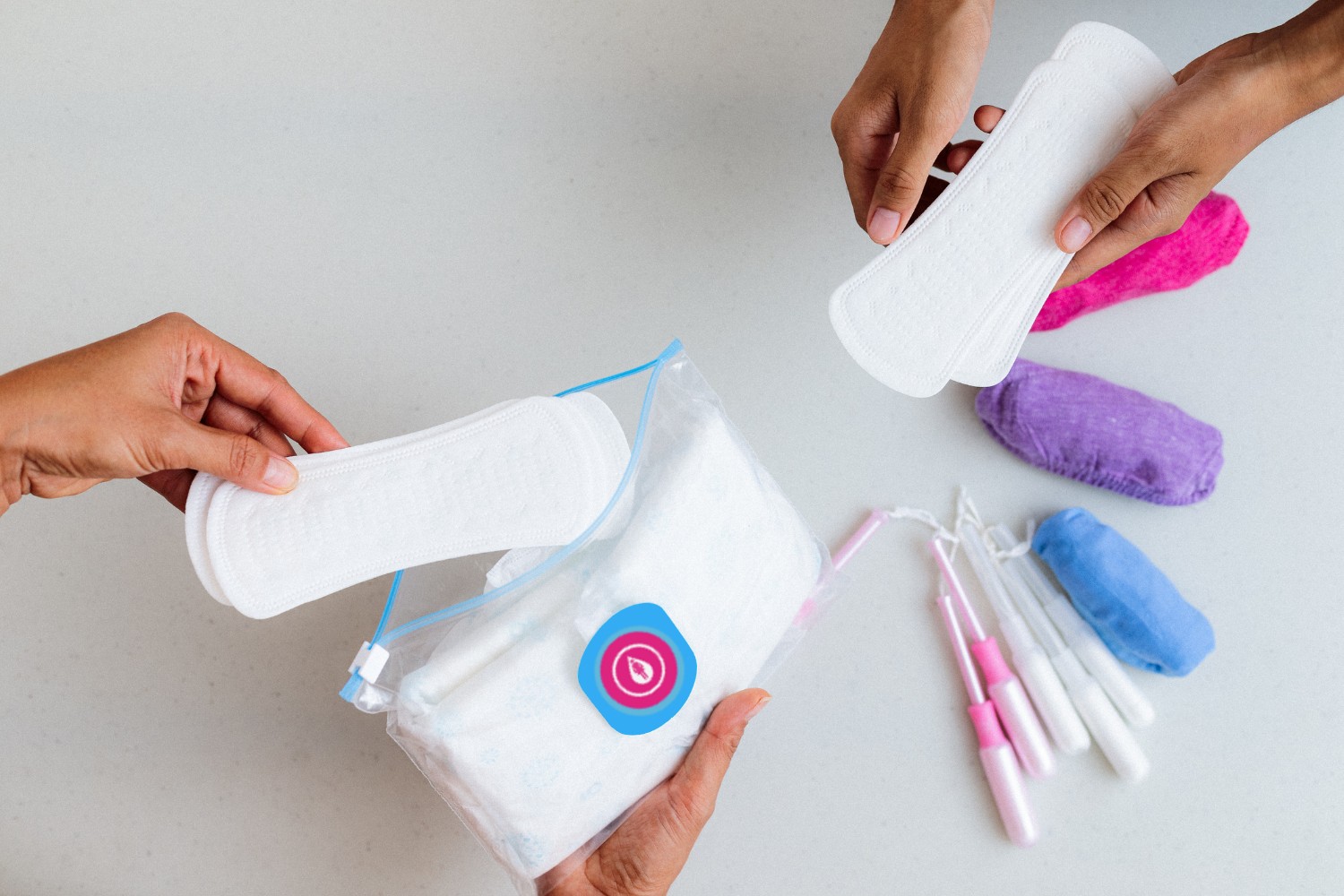
4 Menstrual Hygiene Tips for Healthy Periods and Menstrual Cycles
This article will give you valuable menstrual hygiene tips to help with your menstrual health during your period and menstrual cycle. Maintaining good menstrual health is important in leading a healthy overall lifestyle, as it not only impacts your menstrual area but your entire body.
According to the Centers for Disease Control and Prevention (CDC), good menstrual hygiene can help you remain healthy and comfortable during your period. It can also strengthen your sexual and reproductive health and give your body more opportunities to grow and develop.
On the other hand, poor menstrual hygiene can promote bacteria buildup, infections, and even more serious health issues, in some cases. The risks surrounding poor mental hygiene make menstrual health and education absolutely essential and stress the importance of good menstrual hygiene in one’s healthcare routines.
As you consider these menstrual hygiene tips, remember that healthcare methods vary from person to person. No two bodies are the same!
4 Tips to Maintain Good Menstrual Hygiene
As you consider these menstrual hygiene tips, remember that methods vary from person to person. No two bodies are the same!
- Use clean and absorbent menstrual hygiene products.
Menstrual pads, tampons, or cups are all examples of hygiene products that can help with your menstrual hygiene and sanitation. When choosing the menstrual product that is right for you, make sure you consider factors like:
- Product type
- Absorbency
- Daily activities
- Level of comfort
This way, you can ensure that the menstrual products you use best fit your needs and lifestyle.
- Change menstrual hygiene products regularly.
To maintain good menstrual hygiene and prevent odors, change menstrual hygiene products every 4–6 hours. Depending on how light or heavy your flow is, you may find yourself changing products more or less often. In any case, too much buildup in your menstrual products can lead to unwanted bacterial growth and even infections, so be careful not to wear your used menstrual products for too long.
- Use safe practices when cleaning your vagina.
The vagina is a self-cleaning organ and can be negatively impacted by unsafe cleaning practices. Do not use soaps or douches inside your vagina, as this can throw off its natural PH balance, increase risk of infection, and cause irritation. Instead, wash the area around the vagina with unscented soap and warm water to keep your vagina in healthy condition.
- Wash your hands thoroughly with soap and water before and after changing menstrual products.
Unclean hands when changing menstrual products can invite unwanted bacteria into your menstrual area and increase risk of infection. Before and after changing menstrual products, make sure you wash your hands thoroughly with soap and water. This includes fingers, fronts and backs of hands, and fingernails/spaces underneath nail beds.
Frequently Asked Questions
Pads vs. Tampons vs. Cups: What’s the Difference?
Menstrual pads and tampons both collect blood and tissue from your menstrual flow using absorbent fibers like cotton, rayon, etc. While pads typically line the inside of your underwear, tampons are inserted directly inside the vagina. Most pads and tampons are single-use only, although some reusable options exist.
On the other hand, menstrual cups (sometimes referred to as diva cups) are typically made out of silicone or rubber. Menstrual cups are also inserted into the vagina and are typically reusable, as long as they are stored somewhere clean and properly washed and sanitized before each use.
Can I Wear Menstrual Products Overnight?
Your bodily functions are slower when you are asleep, so you can safely wear menstrual products overnight without risking infection. Overnight menstrual products can also be beneficial if you are wearing menstrual products during sleep or for extended periods of time. However, you should avoid wearing tampons overnight and instead opt for menstrual pads or cups.
What Should I Do With Used Menstrual Products?
Used menstrual hygiene products should be properly disposed of in designated sanitary bins or trash receptacles. To minimize the spread of bacteria, wrap your menstrual product in toilet paper or your menstrual product wrapper before throwing it away. Do not flush menstrual products down the toilet unless they are specifically labeled as flushable items.
How Can I Support Menstrual Health with No Limit International?
No Limit International is dedicated to promoting menstrual health and education throughout Sub-Saharan Africa and the world. You can help support this mission by donating, supporting education initiatives, and advocating for better access to hygiene resources.
Monetary donations of any amount through our donation form are greatly appreciated. You can also donate menstrual products by contacting us via phone or email. Join us as we break barriers, erase stigmas, and provide essential resources for menstrual health and hygiene across Africa.
To learn more about No Limit International, give us a call at +237 699 99 02 89 / +237 675 80 85 10 or contact us via email at info@nolimitinternational.org. Together, we can ensure healthy living for all.